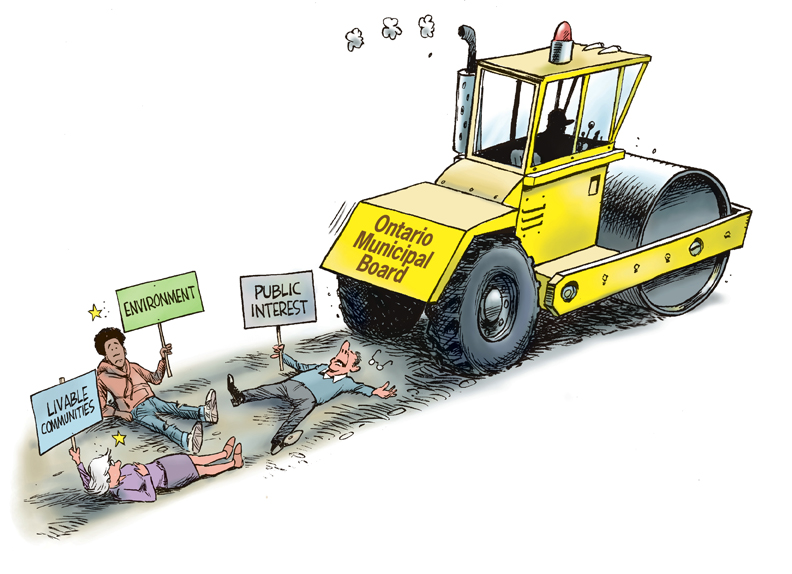This blog was updated on December 13, 2017 to reflect the provincial announcement to dissolve the OMB and replace it with the Local Planning Appeals Tribunal.
Last October, the province began the review of the Ontario Municipal Board (OMB). Over 5,000 emails and postcards were sent by Ontarians urging the province to fix the OMB. The outcome: The OMB is on track to be dissolved this year and replaced with the Local Planning Appeals Tribunal (LPAT).

The good news is the proposed LPAT strengthens municipal democracy. The new rules require that planning applications conform to provincial and municipal plans even if that means sending decisions back to council for a revised decision.
Many municipal councils are breathing a huge sigh of relief. One of the most important and satisfying roles of a municipal councillor is reviewing land use planning applications and making decisions in the public interest to build better communities. The OMB often stole that role away from councils.
Although there is a new name, the rules that allow outrageous cost awards to penalize public participation haven’t changed. And, the foundation of the OMB – the board members who dismissed citizens and environmental matters, sometimes callously – will continue to chair the LPAT.
At Environmental Defence, we believe it’s important that people have a say in shaping their communities. But under the new rules, citizens will have to get permission from the tribunal to appeal a council decision. On a positive note, reforms promise a new citizen’s support centre to provide impartial advice and funding for citizens who are participating in hearings. That will be a welcome addition to the process. Going forward, LPAT hearings will move from oral to written, which will be shorter and less costly for all parties involved.
Between the new provincial Growth Plan, and dissolving the OMB, creating livable communities with mixed-use mid-rise developments near transit should be easier and less costly to achieve.
In communities outside of the Growth Plan area, municipal decisions will still rest on interpretations of the Provincial Policy Statement (PPS). If your municipal council is comprised of thoughtful people who make good decisions for their community, the reforms will be welcome. But in communities where council decisions seem to be overly influenced by private interests, decisions may only be appealed if they clearly don’t conform to municipal official plans or provincial policy.
All in all, getting rid of the OMB is good news. But as municipal decisions will carry more weight, it’s more important than ever to get involved. Attend council meetings, join a ratepayers group or heritage committee, do what you can to get involved in building livable, walkable communities in your town or city.







